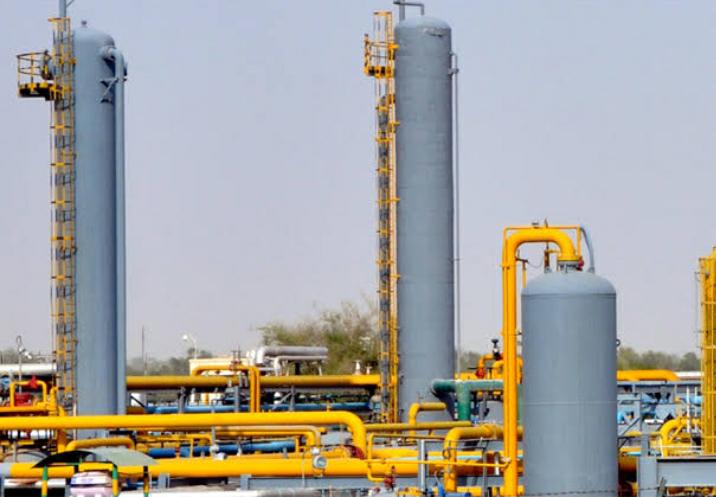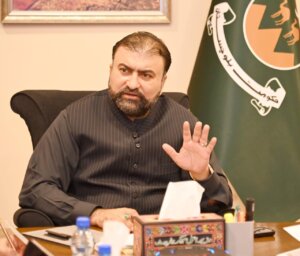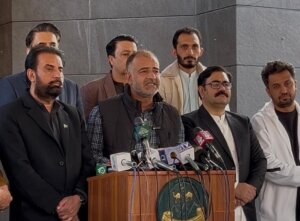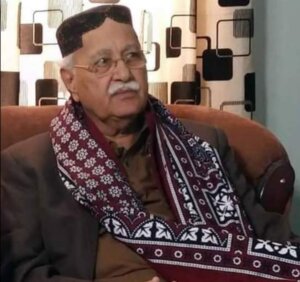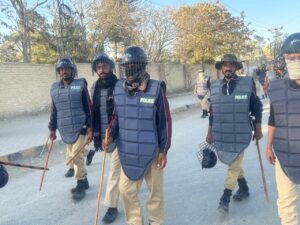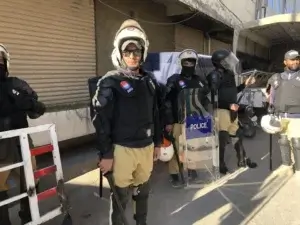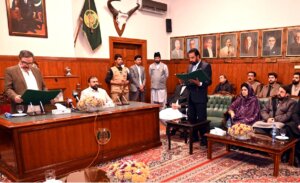PPL and the Case of Balochistan
Mehfooz Ali Khan
As Secretary of Finance, I had initiated a case for getting Balochistan in PPL, the biggest oil and gas producing company. This company owes all its assets based on Balochistan’s Sui Gas Field. Unfortunately, political leadership didn’t press for its due share.
Here is my analysis of PPL from inception. Recent developments have not been captured, but it tells the story.
Overview
Pakistan Petroleum Limited (PPL) has been a major player in the energy sector since the mid-1950s. As a major supplier of natural gas, PPL today contributes over 20 percent of the country’s total natural gas supplies besides producing crude oil, Natural Gas Liquid, and Liquefied Petroleum Gas.
The company’s history can be traced back to the establishment of a public limited company in June 1950, with major shareholding by Burma Oil Company (BOC) of the United Kingdom for exploration, prospecting, development, and production of oil and natural gas resources.
PPL employees were allotted 12 percent shares from the government’s equity
In September 1997, BOC disinvested from the Exploration and Production (E&P) sector worldwide and sold its equity in PPL to the Government of Pakistan (GOP). Subsequently, the government reduced its holding through an initial public offer in June 2004, which was further decreased with the initiation of the Benazir Employees Stock Option Scheme (BESOS) in August 2009 when PPL employees were allotted 12 percent shares from the government’s equity. More recently, GoP further disinvested its 5 percent shares, around 3.55 percent of the total paid-up capital, in PPL through Secondary Public Offering in 2014. Currently, the company’s shareholding is divided between the government, which owns about 68 percent, PPL Employees Empowerment Trust which has approximately 7 percent, and private investors, which hold nearly 25 percent.
PPL has acquired 100 percent shareholding of MND E&P Limited, a company incorporated in England and Wales. The name of the subsidiary has been changed to PPL Europe E&P Limited.
PPL operates eight producing fields across the country
The company has also established a wholly-owned subsidiary, PPL Asia E&P B.V. with a corporate seat in Amsterdam, Kingdom of Netherlands. The subsidiary will focus on the exploration and production of oil and gas in the region. PPL has assigned its interest in Block 8, Iraq, under the Exploration, Development, and Production Service Contract with Midland Oil Company, Iraq to PPL Asia E&P B.V.
PPL operates eight producing fields across the country at Sui (Pakistan’s largest gas field), Adhi, Kandhkot, Chachar, Mazarani, Adam, Adam West and Shadad and holds working interest in fifteen partner-operated producing fields, including Qadirpur the country’s second-largest gas field.
As a major stakeholder in securing a safe energy future for the country, PPL pursues an aggressive exploration agenda aimed at enhancing hydrocarbon recovery and replenishing reserves. PPL together with its subsidiaries has a portfolio of 47 exploration assets of which the company operates 27, including one contract in Iraq, while 20 blocks, comprising three offshore leases in Pakistan and two onshore concessions in Yemen, are operated by joint venture partners.
PPL has developed a reliable foundation and infrastructure for providing clean and safe energy
Over the years, PPL has developed a reliable foundation and infrastructure for providing clean and safe energy through sustainable exploitation of indigenous natural resources while adhering to best practices of corporate governance and employee health and safety and constraining the ecological footprint of its operations. As a result, Monitoring and Inspection, Design and Construction, Drilling and Well Engineering, Joint Operations, Operational Technical Support Services and Projects departments, Mazarani, Adhi and Kandhkot fields, Sui Field Gas Compressor Station, Sui Production, Sui Field Engineering and Sui Purification stand certified for ISO 9001 Quality Management System.
Similarly, Kandhkot, Mazarani and Adhi fields, Sui Production, Sui Field Gas Compressor Station, Sui Field Stores, Sui Field Engineering and Drilling and Well Engineering, Design and Construction, Projects, Health, Safety and Environment and Exploration departments and Sui Field Hospital have been certified for ISO 14001 Environmental Management System and OHSAS 18001 Occupational Health and Safety Assessment Series. Sui Purification is also certified for OHSAS 18001.
Currently Government of Pakistan holds 68% Shares out of total shares outstanding of 676.95% Current Year
Current Financial position of PPL, Currently Government of Pakistan holds 68% Shares out of total shares outstanding of 676.95% Current Year the Company paid 80% dividend to shareholders and government of Pakistan got Rs.36.826 billion as Dividend The net Profit registered by the company was Rs.30.0 Billion, Government also earned billions in tax revenue as well. The government of Balochistan only got slightly above Rs.3.0 billion as Royalty from the Sui field Legal position Legally after 18th Constitutional Amendment, Article 172(3), province of Origin should have an equal share in the profit of oil and gas companies operating in a province. In this case, no such arrangement has yet been made even after a lapse of 10 years. So it is the right of the province to claim its share in holding and profits of the company.
The company divested 5%shares to the public in 2014 and the government of Balochistan was not consulted in violation of the Constitution.
The author has served as the Chief Secretary of Balochistan
